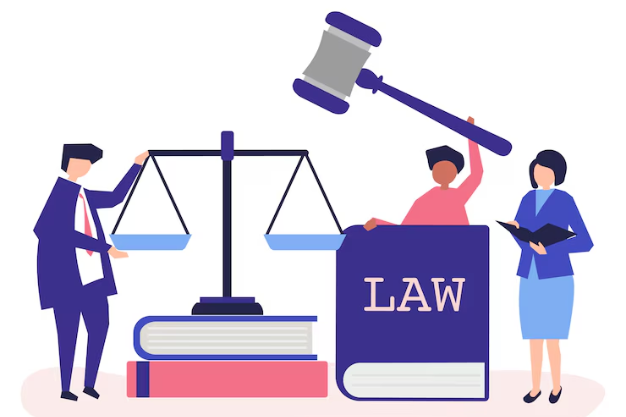S Rajaseekaran v. Union of India & Others: Detailed Case Analysis (2024 SC 35)

As per the mandate of Section 161 of the Motor Vehicles Act 1988, the Central Government has framed the Compensation of Victims of Hit and Run Motor Accidents Scheme, 2022 which is effective from April 1, 2022. As per this scheme, compensation of Rs 2 lakh and Rs 50,000 is payable for deaths and injuries respectively arising out of road accidents where the offending vehicle is not identified.
Taking note of the dismal rate of grant of compensation under the scheme formulated by the Central Government for the victims of 'hit and run' accidents, the Supreme Court has issued a slew of directions. The Court said that in a hit-and-run case, the police must inform the victims about this scheme.
THE SCHEME CAN BE SUMMARISED AS FOLLOWS:
• The Scheme provides for the setting up of the Standing Committee and District Level Committees. The Standing Committee is at the central level. The primary duty of the Standing Committee is to periodically review the working of the Scheme, including consideration of the report of the General Insurance Council. The Standing Committee has the power to direct corrective steps to be taken. Another important function assigned to the Standing Committee is to make recommendations to the Central Government for the amendment of the Scheme for its better and more effective implementation.
• The District Level Committees are under a mandate to evaluate the progress of the Scheme's implementation in the concerned district and take corrective measures. Each District Level Committee is under an obligation to submit a report to the Standing Committee every quarter. The report must include monthly statistics about the claim applications received and how the same are dealt with. Another essential function of the District Level Committee is to ensure that the Scheme gets adequate publicity and the claimants are made aware of their rights under the Scheme.
• Clause 19 provides the procedure for applying for compensation under the Scheme. The applications are firstly considered by the Claims Enquiry Officer, defined in sub-clause (e) of clause 2 of the Scheme. Upon receipt of the applications, the Claims Enquiry Officer must obtain a copy of the First Accident Report (FAR) and post-mortem report (in case of a fatal accident) from the concerned authorities. It is the duty of the Claim Enquiry Officer to decide who the rightful claimants are to claim the compensation
• After receiving a report from the Claims Enquiry Officer, the Claims Settlement Commissioner appointed in terms of sub-clause (f) of clause 2 of the Scheme is empowered to sanction the claim as provided in clause. It is the ultimate responsibility of the General Insurance Council to make an e-payment of the compensation amount within 15 days from the date of receipt of the sanction order and
• Under Clause 24 of the Scheme, the General Insurance Council is under an obligation to prepare an annual report on the working of the Scheme and submit the same to the Standing Committee. The General Insurance Council is constituted under Section 64(C) of the Insurance Act, 1938.
In view of the above discussion, bench issue the following directions
• If the particulars of the vehicle involved in the accident are not available at the time of registration of the report regarding the accident by the jurisdictional Police Station and if, after making reasonable efforts, the particulars of the vehicle involved in the accident could not be ascertained by the Police within a period of one month from the date of registration of accident report, the officer-in-charge of the Police Station shall inform in writing to the injured or the legal representatives of the deceased, as the case may be;
• The officer in charge of the Police Station, within one month from the date of the accident, shall forward the FAR to the Claims Enquiry Officer as provided in sub-clause (1) of clause 21 of the Scheme. While forwarding a copy of the said report, the names of the victims in case of injury and the names of the legal representatives of the deceased victim (if available with the Police Station) shall also be forwarded to the jurisdictional Claims Enquiry Officer, who shall cause the same to be entered in a separate register. After receipt of the FAR and other particulars as aforesaid by the Claims Enquiry Officer, if the claim application is not received within one month, the information shall be provided by the Claims Enquiry Officer to the concerned District Legal Service Authority with a request to the said authority to contact the claimants and assist them in filing the claim applications;
• A Monitoring Committee shall be constituted at every district level consisting of the Secretary of the District Legal Service Authority, the Claims Enquiry Officer of the district or, if there is more than one, the Claim Enquiry Officer nominated by the State Government, and a police officer not below the level of Deputy Superintendent of Police as may be nominated by the District Superintendent of Police. The Secretary of the District Legal Services Authority shall be the Convener of the Monitoring Committee. The Committee shall meet at least once in every two months to monitor the implementation of the Scheme in the district and the compliance with the aforesaid directions;
• The Claims Enquiry Officer shall ensure that a report containing his recommendation and other documents are forwarded to the Claim Settlement Commissioner within one month from receipt of the claim application duly filled in.
